What are some of the symptoms in your body that could mean you have diabetes?
Thanks for the invitation!
Diabetes mellitus is a group of metabolic disorders characterized by hyperglycemia.
If suddenly especially able to eat, often thirsty, drink and then urinate, sleep at night, often feel tired during the day, weight loss, favor eating sweets, then we should pay attention to blood sugar, is likely to have developed diabetes, this disease is sometimes life-threatening, should not be taken lightly.
Here Flourish shares with friends two small remedies for diabetes (for reference only)
A: ten grams of orchid grass and even money grass (fresh grass to be fifty grams) mixed into the right amount of water, boiled until half of the remaining until a day divided into three times to serve, that is, three meals before meals or bedtime to take.
Second: the root of the red cedar half a catty, four bowls of water into a bowl of soup, and then this soup stewed pork ribs eaten together, three doses for three days.
1. Significant increase in water intake
The early stage of diabetes is often characterized by symptoms of thirst, the patient often involuntarily drink more water, while in the urine can be measured in the discharge of urine sugar, especially for some patients suffering from severe diabetes mellitus, the performance is more obvious.
Therefore, if you often feel dry mouth and thirst, and at the same time drink a significant increase in the amount of water compared with the usual, you should suspect that it is the early symptoms of diabetes mellitus.
2. Increased urination
As diabetics drink more water, this also results in increased urination, and in general, the more severe the diabetes, the higher the level of urinary sugar detected in the urine, which is a major test for diabetes.
Therefore, you can monitor your 24-hour urine output, and if you find that there is a large increase with the past, you should go to the regular hospital for diabetes checkups.
3. Eating more than usual
Diabetic patients are unable to meet the needs of daily body consumption due to the low conversion capacity of sugar in the blood, and the outward manifestation of this is that they feel hungry very easily and show signs of increased food intake.
Some diabetics usually have a high intake of staple foods and sugar, and a large amount of dietary use exacerbates the progression of diabetes, creating a vicious cycle.
Therefore, in the early stages of diabetes, the amount of food and drink should be strictly controlled by eating smaller and more frequent meals.
4. Body wasting and weight loss
Despite the fact that diabetics are eating more than ever before, the body's energy supply is insufficient due to the abnormal functioning of blood glucose and the inability to break it down from blood sugar into glucose in a timely manner, which tends to lead to the occurrence of symptoms such as wasting of the body and paleness of the face.
Symptoms such as weight loss will also be noticed in the long term.
The three more and one less of diabetes refers to drinking more, urinating more, eating more and losing weight. In addition to these symptoms, there are some other symptoms such as: 1. Fatigue . Due to the inability of blood sugar to enter the cells and the lack of energy in the cells. About 2/3 of diabetic patients have symptoms of fatigue and weakness.
2. Easily infected Diabetes affects the immune function, leading to a decline in resistance, easy to skin scabies, respiratory, urinary system, biliary system of all kinds of inflammation, and poor treatment.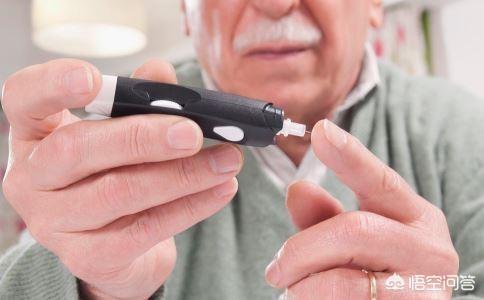
3. Abnormal skin sensation Sensory nerve disorder causes abnormalities in the skin of the peripheral parts of the limbs, such as ants, numbness, pins and needles, itching, especially women are prone to vulvar itching, which is sometimes regarded as the first symptom. 4. Visual impairment Diabetes can cause complications in various parts of the eye, which may lead to vision loss, black haze, and blindness, etc. Diabetes can also cause eye diseases, such as diabetes mellitus, diabetes insipidus, diabetic mumps, and diabetic mites.
5. Sexual dysfunction Diabetes causes vascular and neurological lesions as well as psychological disorders, such as impotence in men and sexual dysfunction in women such as sexual indifference and menstrual disorders.
6. macrovascular lesions Type 2 diabetes patients with insulin resistance, hyperinsulinemia and other symptoms, there will be high blood pressure, high blood cholesterol, obesity, coronary heart disease, high blood viscosity and other problems, which is not a symptom of diabetes, often for the comorbidities of diabetes, but there are these cases, should pay attention to detect whether the blood glucose is elevated.
Some diabetic patients do not have obvious diabetic symptoms, but merely show signs of complications, such as: sudden blurred vision and visual impairment, unexplained generalized itching of the skin or recurrent boils, vulvar itching in female patients, frequent urinary tract infections, coldness on the soles of the feet, numbness or pain in the limbs, as well as sudden onset of cerebral thrombosis, impaired consciousness, and coma, and so on. One should go to the hospital as early as possible for examination when these conditions are detected.
Welcome to follow Nameless Pharmacist, I will share more health knowledge!
The typical symptoms of diabetes are "three more and one less", that is, drinking more, eating more, urinating more and losing weight, but nowadays very few people really go to the doctor only when they have these obvious symptoms, so nowadays it is really rare to see the typical "three more and one less" patients. So it is really rare to see typical "three more and one less" patients nowadays.

Most of them are physical examination found elevated blood glucose, there are some people are in the pre-surgery routine examination found elevated blood glucose, there are a few people do not have obvious symptoms, also do not physical examination, until the emergence of complications go to the clinic before checking out there is diabetes, the most common is the fundopathy, there are also foot ulcers for a long time, that is to say, diabetic foot, if you can't intervene in time and effectively, the consequences are really unimaginable.
Diabetes is a chronic disease most closely related to diet, the development of the disease is a gradual development of a chronic process, so as long as the regular physical examination, will certainly be detected in time. Once found elevated blood sugar, we must timely intervention, do not care that only a little higher than the laboratory value, since beyond the normal range, that is to say that the body metabolism has been abnormal, this metabolic disorders will be from light to heavy gradual development, do not wait until the development of diabetes only to intervene, and at this time want to reverse the state of the disease is not really an easy thing.
If the blood sugar abnormalities first need to control the diet, control is not not eat, but to eat reasonably, the closest relationship with the blood sugar staple food to limit the amount of at the same time should also pay attention to the coarse and fine mix, coarse grains accounted for more than half of the vast majority of the vegetables on the blood glucose is not significant, you can eat more to meet the nutritional needs of animal food is also essential, fish and shrimp are preferred, the meat must be selected lean, cooking Cook with as little oil as possible.
Original Author Li Feng Chief Physician Clinical Nutritionist
In modern society, with the rapid development of the economy, people's living standard is getting higher and higher, the diet structure is getting richer and more complex, and the living habits are changing, people's health began to appear various problems, especially diabetes, which has almost become a social problem! So how can we find out if we have diabetes in time? Can we only rely on going to the hospital for a blood test? Although most of us go to the hospital every year for medical checkups, there are always some people who are unable to do so for various reasons, which requires us to know the initial symptoms of diabetes in order to detect and intervene as soon as possible!
First, more food, patients eat food and its digestion and absorption, absorption into the blood sugar will be difficult to enter the cells because of diabetes, the cellular utilization of sugar will be impaired, so that the cells have been in a state of starvation, this state will be through the body's feedback mechanism to stimulate the brain's hunger center and let a person to produce a sense of hunger, so that the person is always a kind of eating is not enough to feel, naturally, unconsciously eat more;
Second, thirst, polyuria, diabetic's utilization of sugar is reduced, when the body's sugar more than their own ability to use, too much sugar will be filtered out by the kidneys, thus appearing in the urine sugar symptoms, and sugar excretion will take away a large amount of water, resulting in patients often appear thirsty symptoms, diabetic the more thirsty the more they love to drink water, however, drinking water will be excess sugar and a large number of taken out of the body, which This has formed a vicious cycle;
Third, weight loss, diabetic blood sugar can not be broken down into energy to supply the body to use, but in order to be able to maintain the normal function of the body, the body tissue cells began to break down the use of their own protein and fat, when your fat and protein is consumed in large quantities, weight loss is natural;
Fourth, vision loss. Sustained elevated blood glucose can easily cause damage to the microvessels and nerves within the eye to the extent that it affects the nutrient supply to the eye, resulting in visual impairment;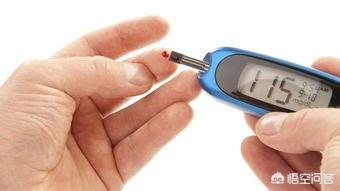
Fifth, fatigue, people's lives are maintained on the basis of blood sugar decomposition of the energy supplied by the diabetic although the blood sugar content is high, but can not be effectively utilized, resulting in insufficient supply of energy to the body, not enough energy to support, people and where the physical and mental;
Sixth, numbness and tingling, the incomplete utilization of sugar by diabetics makes the patient's body always in a state of energy deficiency, prolonged ischemia and hypoxia, insufficient energy supply will damage the nerves, resulting in numbness and tingling of the skin of the limbs or insensibility, especially the distal part of the limb blood supply is relatively insufficient, such as the fingers, toes, and so on!
The above is purely personal, please correct me if there is any disagreement!
Diabetes mellitus is a disease of high blood glucose due to insufficient insulin secretion or insulin resistance. Its main danger is due to the microvascular lesions caused by high blood glucose, which leads to chronic damage to target organs such as kidneys, cardiovascular and cerebrovascular vessels, eyes, and peripheral nerves, and to the corresponding dysfunctions.

The symptoms of diabetes can be described as "three more and one less", which means more urination, more drinking and more eating, and one less is weight loss. Symptoms such as itching, numbness, and ulceration of the skin occur when there are associated lesions and complications.

The presence of some relevant symptoms does not prove that you have diabetes, only that it is suspected or possible.
To prove the development of diabetes, blood glucose level is the only criterion to diagnose diabetes and some other tests and symptoms are just aids and further verification.
In addition to blood glucose, other commonly used tests related to diabetes are routine urinalysis, urine ketone bodies, glycosylated hemoglobin, glycosylated serum protein, serum insulin and C-peptide levels, as well as three important immune markers for the diagnosis of type 1 diabetes, such as antibodies to islet cells, autoantibodies to insulin, and antibodies to glutamic acid decarboxylase.
Thank you for inviting me to answer your questions. I am Health Manager Con. To understand what signs and symptoms of diabetes are present in the body that indicate diabetes, you need to know what are the symptoms of diabetes first?
Early symptoms of diabetes mellitus are divided into two categories: one is the typical symptoms of "three more and one less" related to metabolic disorders, which is common in type 1 diabetes mellitus; the other is the symptoms caused by various complications. "Three more" means more drinking, more eating, more urinating, and here more means more than normal or more than one's original; "one less" means weight and physical strength loss.
1, drinking: due to hyperglycemia so that plasma osmolality increased significantly, coupled with polyuria, excessive water loss, resulting in thirst and drinking, drinking further aggravated by polyuria.
2, more food: because the body's sugar as urine sugar is excreted, the body does not absorb enough sugar to produce calories to maintain the basic needs of the body will feel unusually hungry, resulting in a large increase in the amount of food.
3, polyuria: the more urinary sugar excretion produces more urine, 24h urine volume up to 5000 ~ 10000ml. but the elderly and people with kidney disease, polyuria symptoms are often not obvious.
4. Weight loss: Although diabetic patients have normal appetite and food intake or even increase, they still have weight loss. This is mainly due to absolute or relative insulin deficiency or insulin resistance, which makes the body unable to fully utilize glucose to produce energy, resulting in excessive fat and protein consumption and gradual weight loss. If diabetes mellitus is well controlled through rational treatment, weight loss will improve.
5. Fatigue: This is mostly due to the fact that glucose cannot be fully oxidized, resulting in the body's inability to fully absorb glucose to release energy, and therefore will often feel generalized fatigue. It is also common in diabetic patients.
6. Symptoms of complications, such as loss of vision, itchy skin, recurrent skin infections, symmetrical numbness and pain in both hands or feet, frequent vulvar itching in women, miscarriages, and foot ulcers that do not heal for a long time.
Therefore, as long as the blood sugar is high, the patient needs to go to the hospital to see if the diagnosis of diabetes is confirmed. When the symptoms of "three more and one less" appear, it is likely that diabetes is already in an advanced stage.
Sugar man health network, a temperature control of sugar platform, welcome to pay attention to the questions and answers!
Diabetes is extremely harmful to human health, and this harm often occurs unknowingly. Patients who usually do not pay attention to the necessary examinations and proper treatment will regret it once acute complications of diabetes or irreversible chronic complications of diabetes have occurred. Every year, many diabetic patients pay a heavy price for their ignorance of diabetes.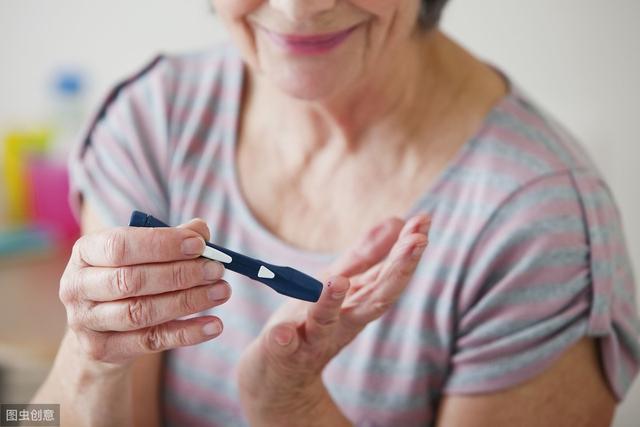
The dangers of diabetes are mainly in the following areas
① The symptoms of diabetes itself cause mental and physical suffering to the patient:The patient is in general discomfort and is forced to control his diet and exercise, as well as taking medication and injections, a situation that lasts indefinitely, the pain of which is difficult for non-diabetics to experience.
② Acute complications of diabetesThe patient's life may be directly jeopardized.
③ Chronic complications of diabetes, including macrovascular, microvascular and neurological complications, may cause a significant reduction in health and work capacity, or even disability or premature death, with a significant reduction in quality of life.
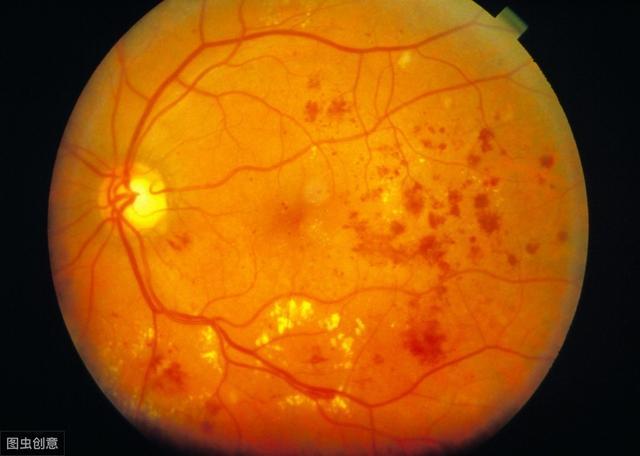
④ The growth and development of children with poorly controlled diabetes may be severely affected.
⑤ The cost of diabetes treatment can place a heavy financial burden on the patient, their family, their workplace, and the state.For example, in 2007, the United States spent $180 billion directly and indirectly on diabetes prevention and treatment. It is estimated that the annual cost of diabetes in China is not less than RMB 200 billion.
Therefore, early detection of diabetes, correct and effective treatment of diabetes, and minimization of the harm caused by diabetes and its complications are the obligations and responsibilities of every diabetic patient as well as medical personnel engaged in the prevention and treatment of diabetes.

What are the signs that a person should go to the hospital to check for diabetes?
Diagnosing diabetes is not difficult; what is difficult is thinking about the possibility of getting diabetes and going to the hospital for the necessary tests to confirm or rule it out. There are some symptoms that can be clues to detecting diabetes and should be given enough attention:
① People with a family history of diabetes mellitus: if their parents, siblings, children or other relatives (spouses are not included) have diabetes mellitus patients.
② Obese people, especially those who were previously obese and have recently lost weight and strength.
(iii) Those with "three more and one less" symptoms.

(iv) Those with reduced vision, especially binocular vision.
⑤Itchy skin, sores that grow easily, and skin injuries that are difficult to heal.
(vi) Those who are addicted to tobacco and alcohol:It is believed that people with bad habits such as smoking and drinking also have increased chances of developing diabetes, so people with these habits should also be alert to diabetes. Among them, smoking definitely has an effect on the development of diabetes. The author has found that the earlier a person starts smoking, the more cigarettes he or she smokes per day, and the longer the history of smoking, the more likely he or she is to develop diabetes.
Routine annual physical examination is a regular monitoring of one's own health condition, and one should actively participate in health checkups in general, instead of always saying that one is "fine, one's body is fine, no need to check". If you have any doubts about the results of your physical examination, you should go to the hospital immediately.

Why some diabetics have no symptoms
It is important to note that not all diabetic patients have visible symptoms, i.e. a person without diabetic symptoms does not necessarily have to be diabetic. The main reasons for this are as follows:
(1) The symptoms of diabetes do not appear until the blood sugar is high enough to reach a certain level:It has been found that clinically significant symptoms of diabetes, such as "three more and one less", are only apparent if the blood glucose level is above 15.0 mmol/L (270 mg/dL) for a certain period of time, but the blood glucose criteria for the diagnosis of diabetes are much lower than this value.
(ii) Insensitivity to hyperglycemia:Some people, especially the elderly may not be so sensitive to hyperglycemia, blood glucose has been very high, and clinically there is no feeling. For example, some people have elevated renal glucose threshold, although they are already diabetic patients, but because of the urine sugar is not much, but there is no feeling.
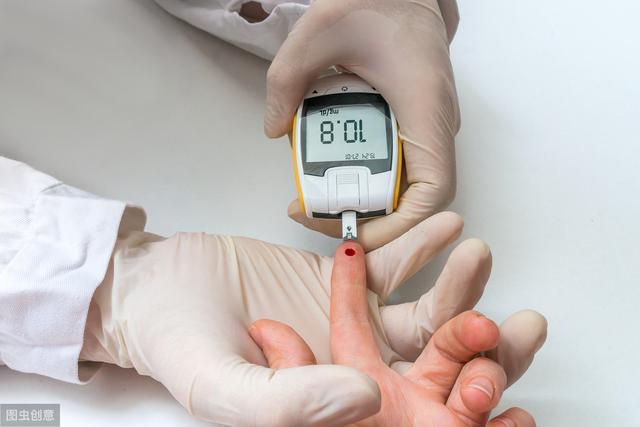
(iii) Lack of knowledge about diabetes:Some people do not know anything about diabetes, although there are already "three more and one less" symptoms but did not recognize, but also think it is "can eat and drink the body is good", "money is difficult to buy old age thin".
These situations can easily lead to under-diagnosis, which may result in a delayed diagnosis of the disease. Overseas research has found that there is a 7-10 year interval between the diagnosis of diabetes and the patient's illness, in other words, before the diabetic patient gets a clear diagnosis, he or she may have unknowingly suffered from diabetes for many years, which is especially likely to happen to patients with type 2 diabetes, and it is especially worthwhile to be vigilant.
If the body appears these 4 symptoms, most likely suggests that the body of high blood sugar, be careful of diabetes to attack, for their own health, may wish to come together to understand, in order to facilitate early detection and early treatment.
Symptom 1: Development of an infection

When a person suffers from diabetes, the body's resistance is lowered. So it is easy to be infected by germs. Not only infected with pathogenic microorganisms, but also infected more parts of the body, such as the skin, the urinary system, and so on. Therefore, when you have multiple infections in your body over a period of time, do not be careless at this time, you need to consider whether it is due to diabetes, and to be on the safe side, it is best to go to the hospital for examination.
Symptom 2: Low blood sugar
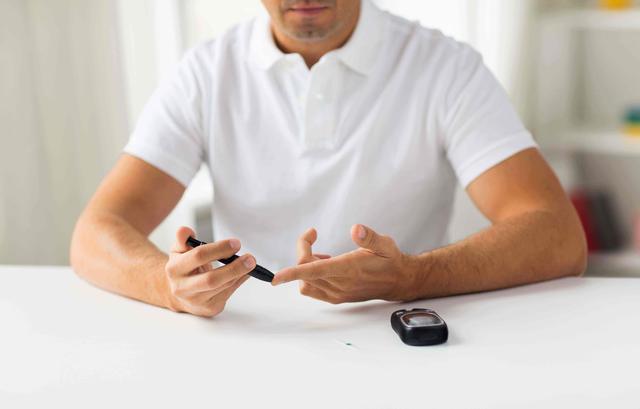
Symptoms of hypoglycemia are present in the early stages of developing diabetes and occur more frequently. Some of the more prominent symptoms are weakness, trembling and palpitations. These symptoms usually occur after a meal or between meals, but after the meal, these symptoms will be relieved. Therefore, once the body frequently appears low blood sugar situation, this time also need to consider whether it is a hint of diabetes, must not be careless.
Symptom 3: Vision loss

Long-term high blood sugar levels in the body can also affect the retina, which is why people with diabetes often experience eye fatigue or blurred vision. If your vision suddenly changes from farsightedness to nearsightedness, this may also be due to diabetes. Therefore, it is best to choose to go to the hospital in time for checkups when similar situations like the above occur.
Symptom 4: Skin disease
Diabetes is a metabolic disease that occurs because of a metabolic disorder in the body. So once you suffer from diabetes, it will definitely have an effect on the state of one's skin. If you have a sudden increase in the number of skin conditions that do not occur often over a period of time, you need to consider whether diabetes is the cause at this time.
Nowadays, the number of people suffering from diabetes is on the rise, and the vast majority of people find out when it is already a relatively late stage of the disease, but if you can learn in advance of the early stage of diabetes, these 4 symptoms, is able to find and treat the disease as early as possible in the early stage. Therefore, it is very necessary to know about diabetes in advance, because once you have a similar situation in your body, you will be able to detect and treat it as soon as possible. However, do not worry too much, appear similar to feel as if they seem to be very sick, to calm the mind, if there is discomfort, go to the hospital in time to check.
The question is what are the physical symptoms that may indicate diabetes? This question I think so, a person suffering from diabetes is a precursor, three more than one thin, more hunger, more food, more urine, people thin, this time you fasting to test the finger whole blood glucose, test down blood glucose in more than 9, thus we have to pay attention to their own diabetes, three more than one thin, not to be able to care to later develop severe diabetes without hair control.
This question and answer are from the site users, does not represent the position of the site, such as infringement, please contact the administrator to delete.